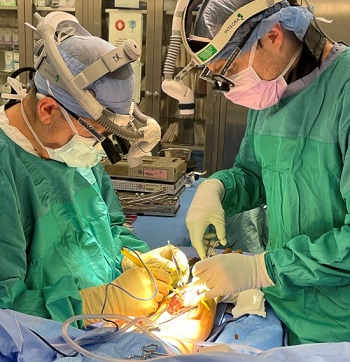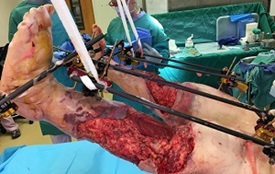Orthopaedic Trauma Clinical Education

The primary goal of the Orthopaedic Traumatology Fellowship Program is to produce graduates who are ready to serve as skilled surgeons on day 1 as a new attending. Fellows are exposed to a high volume of complex orthopaedic traumatic injuries from the 8,000 trauma admissions at the STC. The setting encourages independence and autonomy while providing readily available direct supervision from experienced and dedicated clinical staff. Fellows participate directly in initial evaluation, preoperative planning, and surgical treatment of patients with acute traumatic injuries.
In addition to the significant operative experience in a acute fracture reconstruction, fellows will become adept in arthroplasty for orthopaedic trauma. This includes arthroplasty for geriatric acetabular fractures, conversion from failed fracture fixation, revision arthroplasty for periprosthetic fractures, and shoulder arthroplasty for fracture. Additionally, fellows will have a strong exposure to the management of complex soft tissue injuries and rotational flaps, nonunions, malunions, and learn a variety of techniques in the treatment of massive bone defects.

Consequently, fellows graduate from the program confident about their expertise in managing patients with complex polytrauma and high-energy musculoskeletal injuries as well as addressing the post-traumatic sequele associated with these injuries. Nonoperative training includes daily participation in rounds and a half-day of clinic per week. Fellow call is taken from home, and all cases are presented to the fellows by the in-house senior residents for early management decisions.
